What are Maitake Mushrooms?
Maitake, also known as Grifola frondosa, translates to dancing mushroom in Japanese because, upon its discovery, it is said that people danced with happiness [1]. It is commonly recognized as an adaptogen, meaning it helps the body to fight against mental or physical ailments and prevent the consequences of being in “fight-or-flight” mode [1]. Much like all functional mushrooms, Maitake are packed with an array of mushroom nutrients; they are rich in many antioxidants, vitamins, and minerals, allowing it to play a role in treating or preventing many health conditions [1].
Maitake mushrooms typically grow in the wild on the base of trees, particularly Oak, Elm, and Maple trees. They have a distinctive appearance, with overlapping fronds resembling a fan or a hen's ruffled feathers, resulting in the name “hen of the woods.” The mushrooms can grow quite large, sometimes weighing up to 50 pounds.
The Health Benefits of Maitake Mushroom
In traditional medicine, Maitake mushrooms have been used to treat a variety of ailments, including high blood pressure, diabetes, and cancer. More recently, researchers have been studying the potential health benefits of Maitake and have found that it contains several bioactive compounds that may help to support immune function, reduce inflammation, and even inhibit the growth of cancer cells.
Maitake was found to downregulate TH2 cytokines, which suggests a benefit in treating cancer [2]. One study explained that a TH2 response can be detrimental to cancer patients because it decreases IFN-g, a cytokine that stimulates the cellular immune response to cancer [2]. The cytokine pattern associated with a beneficial immune response to cancer is TH1 because the dominant cytokine in this pattern is IFN-g; thus, by preventing a TH2 response, Maitake has shown potential as an adjunct to cancer care [2].
Dexamethasone is a corticosteroid used to treat many conditions, but it can lead to the depletion of important immune cells [3]. Administration of a Maitake mushroom extract to dexamethasone-treated mice recovered more than 40% of the level of depleted T and natural killer cells, which are immune cells important to innate and adaptive immunity [3].
Additionally, in another animal study, Maitake administration over 15 days prevented more than 60% of breast tumor development, blocked tumor invasiveness, and increased overall survival rates [3]. This study suggests that Maitake has beneficial immunomodulatory potential and may decrease tumor burden and metastasis, thus decreasing mortality rates.

What are the Beneficial Bioactive Compounds in Maitake?
Beta-D-Glucans
One of the most notable compounds found in Maitake mushrooms are beta-D-glucans, a type of polysaccharide that has illustrated metabolic and immunomodulating properties, such as anti-cancer, anti-bacterial, and anti-viral actions [4]. The beta-D-glucans present in mushrooms differ from other sources as they are structurally unique and recognized by receptors located on the surface of immune cells; thus, certain functional mushrooms have greater bioactivity and specific immunomodulatory properties that other sources of beta-D-glucans do not [4].
Macrophages are specialized cells that detect and destroy bacteria and other harmful organisms. These immune cells and many others carry specific receptors for beta-D-glucans, such as dectin-1 [4]. Dectin-1 is the most abundant receptor, and its activation stimulates processes that lead to the death and elimination of pathogenic microorganisms that may invade the body [4].
Niacin
Maitake mushrooms are considered a rich source of vitamin B3. Vitamin B3, also known as niacin or nicotinic acid, is a precursor of NAD and NADP, a cofactor many enzymes use for different cellular processes within the body [5]. High NAD levels have been found to inhibit the production of reactive oxygen species (ROS), which, when overproduced, can offset the actions of immune cells by causing immunosuppression [5,6]. Niacin treatment has also been found to increase glutathione levels and decrease malondialdehyde levels, a marker of oxidative stress [5].
Oxidative stress occurs when there is an imbalance between ROS production and the body's antioxidant capacity [7]. Chronically elevated oxidative stress has been associated with impaired immune responses and is seen in long-lasting viral infections, such as HIV and EBV [7]. Glutathione (GSH) is a powerful antioxidant and regulator of oxidative stress [8]. Increased GSH levels have been shown to enhance immune function markers and reduce oxidative stress biomarkers [8].
Riboflavin
Maitake also contains Vitamin B2, also known as riboflavin. The body uses Riboflavin to metabolize fats, protein, and carbohydrates into glucose for energy [9]. However, it also acts as an antioxidant important for immune system function thanks to the two co-enzymes, FMN and FAD, which are involved in many oxidation/reduction reactions in the body [9]. Deficiencies of riboflavin have been noted in common conditions such as anemia, cataracts, migraines, and thyroid dysfunction [9].
Phosphorous
Decreased levels of phosphorous in the body can increase individuals' susceptibility to infections [10]. Without adequate phosphorous levels, weakened immune responses have been noted, in addition to a lack of recovery in damaged cells, as phosphorous is also involved in the growth, maintenance, and repair of cells and tissues [10].
Potassium
In addition to containing phosphorous, Maitake is also a source of potassium. Recent studies have found an imbalance of potassium within the body in certain infections, such as SARS-CoV2 (COVID-19) [11]. Higher potassium levels are excreted through the urine, resulting in hypokalemia and increased disease severity [11]. Not only does this leave patients susceptible to arrhythmia and respiratory dysfunction, but potassium dysregulation was also found to promote viral pathogenicity. Patients with severe COVID-19 had to be treated with potassium to return levels to normal [11].
Vitamin D
Lastly, Maitake is an important source of vitamin D. Vitamin D regulates the innate immune system, the first line of defense against infection [12]. It enhances the antimicrobial activity of many immune cells while also increasing their efficiency [12]. Vitamin D deficiency has been seen in many chronic medical conditions caused by inflammation and immune dysregulation, such as asthma and rheumatoid arthritis [12].

What are the Health Benefits of Maitake in Your Daily Routine?
While enhancing immunity is a powerful function of the Maitake mushroom, it has also been shown to provide benefits in improving heart health and regulating glucose levels. Research has found that Maitake was able to lower common signs and symptoms of type 2 diabetes (high blood sugar, increased urine volume, glucose in the urine) while also improving glucose tolerance levels [13]. Additionally, Maitake illustrated the ability to improve lipid profiles by inhibiting the accumulation of lipids in the liver and inhibiting the elevation of lipids in the blood [14].
Overall, incorporating Maitake mushrooms into your daily routine may offer a number of health benefits to support your overall health and well-being:
- Boosting immune function
- Supporting cardiovascular health
- Reducing inflammation
- May have anti-cancer properties
- Supporting brain health against oxidative stress
How to Use Maitake Mushrooms?
While Maitake mushrooms can be enjoyed in a variety of dishes, including soups, stews, and stir-fries, they can also be used in mushroom extract blends and as mushroom capsules to maximize their health benefits and reach therapeutic doses.
Mushroom extract blends often come in powder form, making them a simple addition to your morning cup of coffee or tea. You could go even further and add them into your smoothies, or even into your cooking to provide another level of depth and earthiness.
For those who enjoy taking supplements, mushroom extract capsules are a convenient way to consume the mushroom's health benefits without having to cook with it. With any mushroom product, it is important to follow dosage instructions and stay consistent; consistency is key when it comes to reaping the benefits of any supplement.

Where to Buy Maitake Mushroom Products?
Although the market for functional mushrooms is wide, it is important to be mindful of what is inside the products you are buying. If you find the words “full spectrum,” “mycelial biomass,” or “extracellular compounds” on the label, this means the product is made with the substrate the mushrooms are grown on, adding filler into your product. Full spectrum is often advertised as a beneficial aspect of the product by some companies. Still, you’d need to consume much more of it to achieve the same benefits as you would from a product containing 100% fruiting body.
Eversio Wellness carries 100% fruiting body only mushroom extracts, and they consistently practice transparency to their consumers by sharing the COAs (Certificate of Analysis) of each product. The COAs reassure consumers that the percentage of compounds that are claimed to be in the products is scientifically confirmed through lab testing. Eversio Wellness also tests the heavy metal and microbial contents so you can be sure that your mushroom product is safe.
Eversio Wellness has formulated two mushroom extract blends, 4 Mushroom Blend and the 6 Mushroom Blend, which both contain Maitake. Both blends provide powerful antioxidant support in powdered form, making it a simple addition to any coffee, smoothie, or even meal.

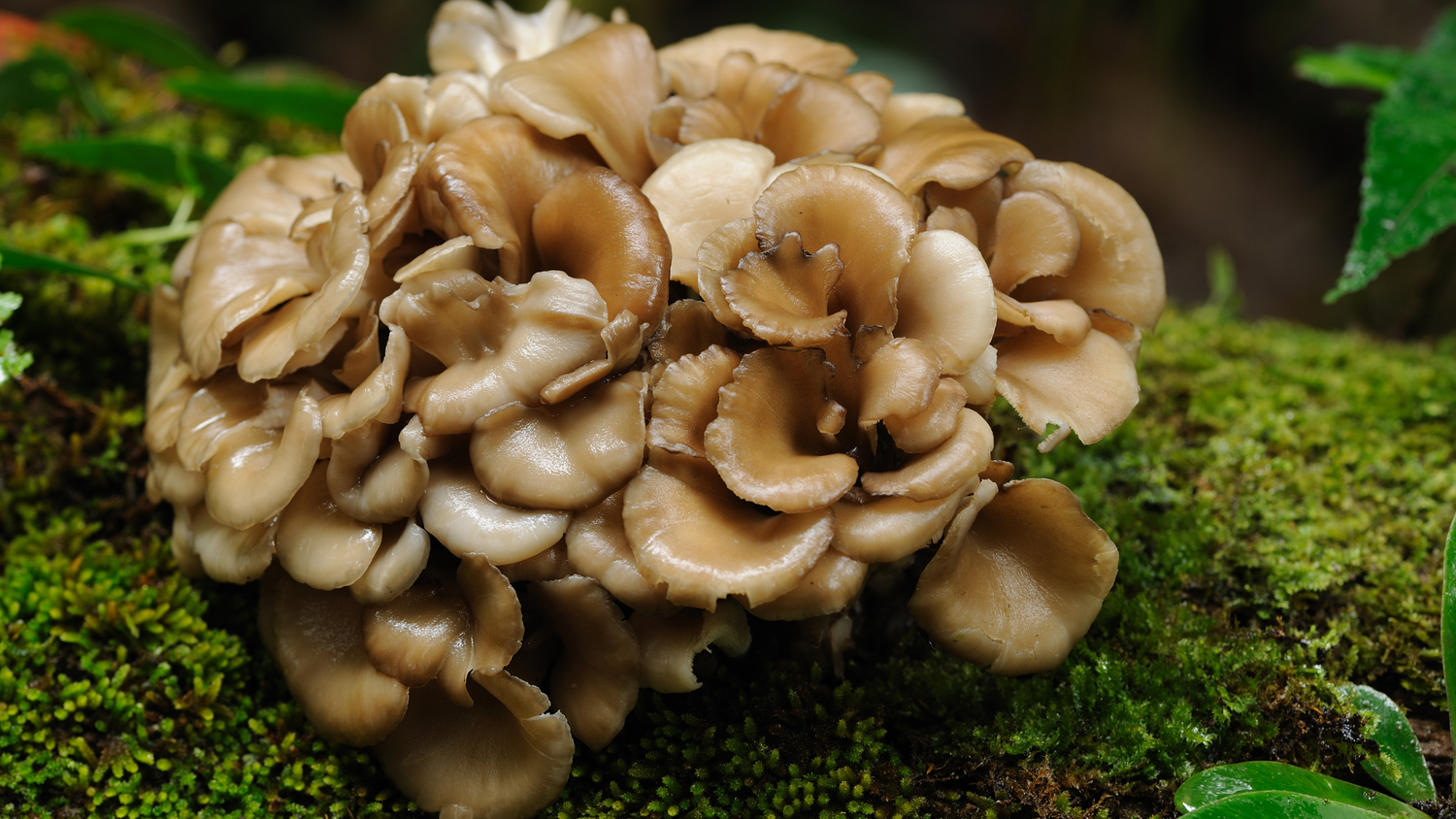
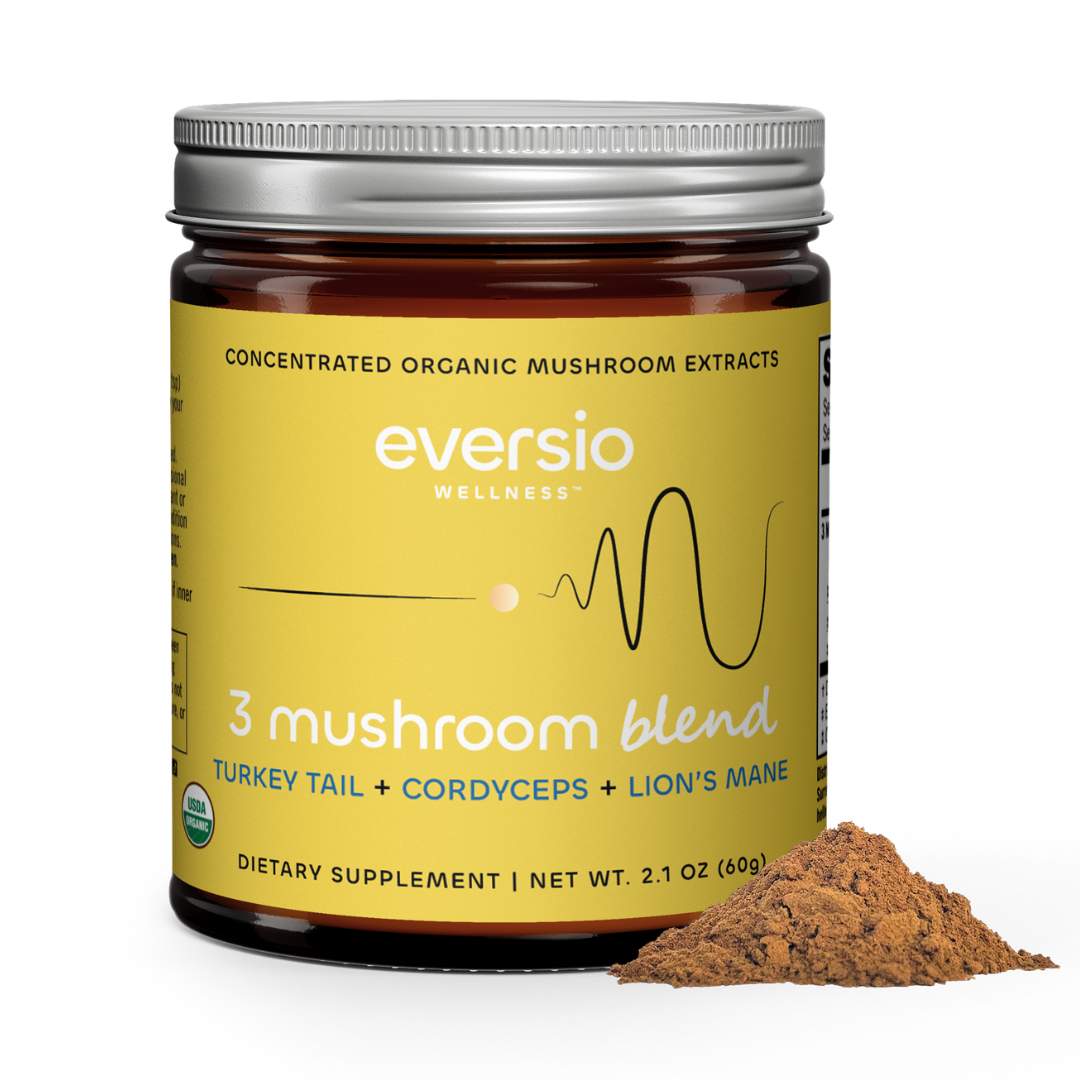
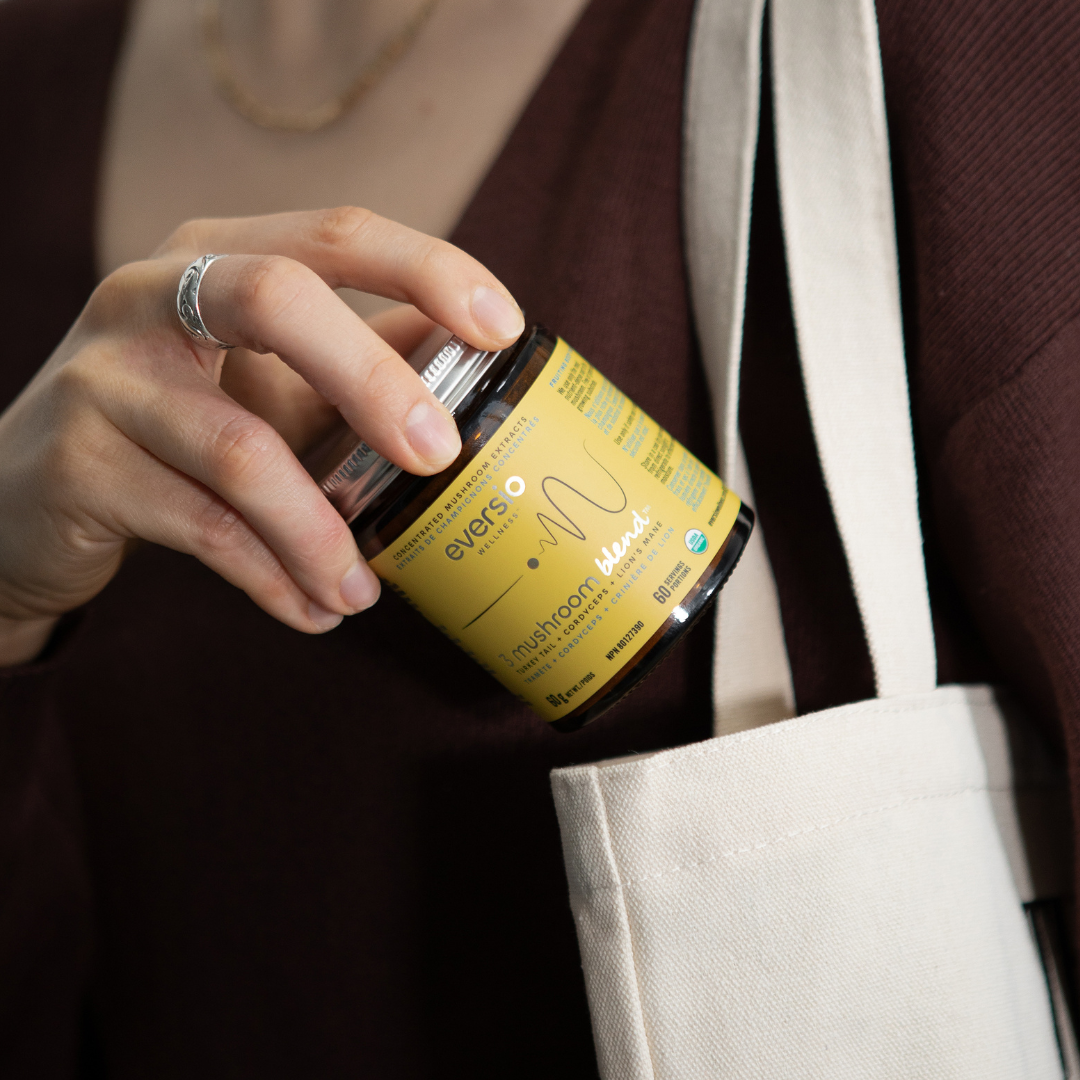

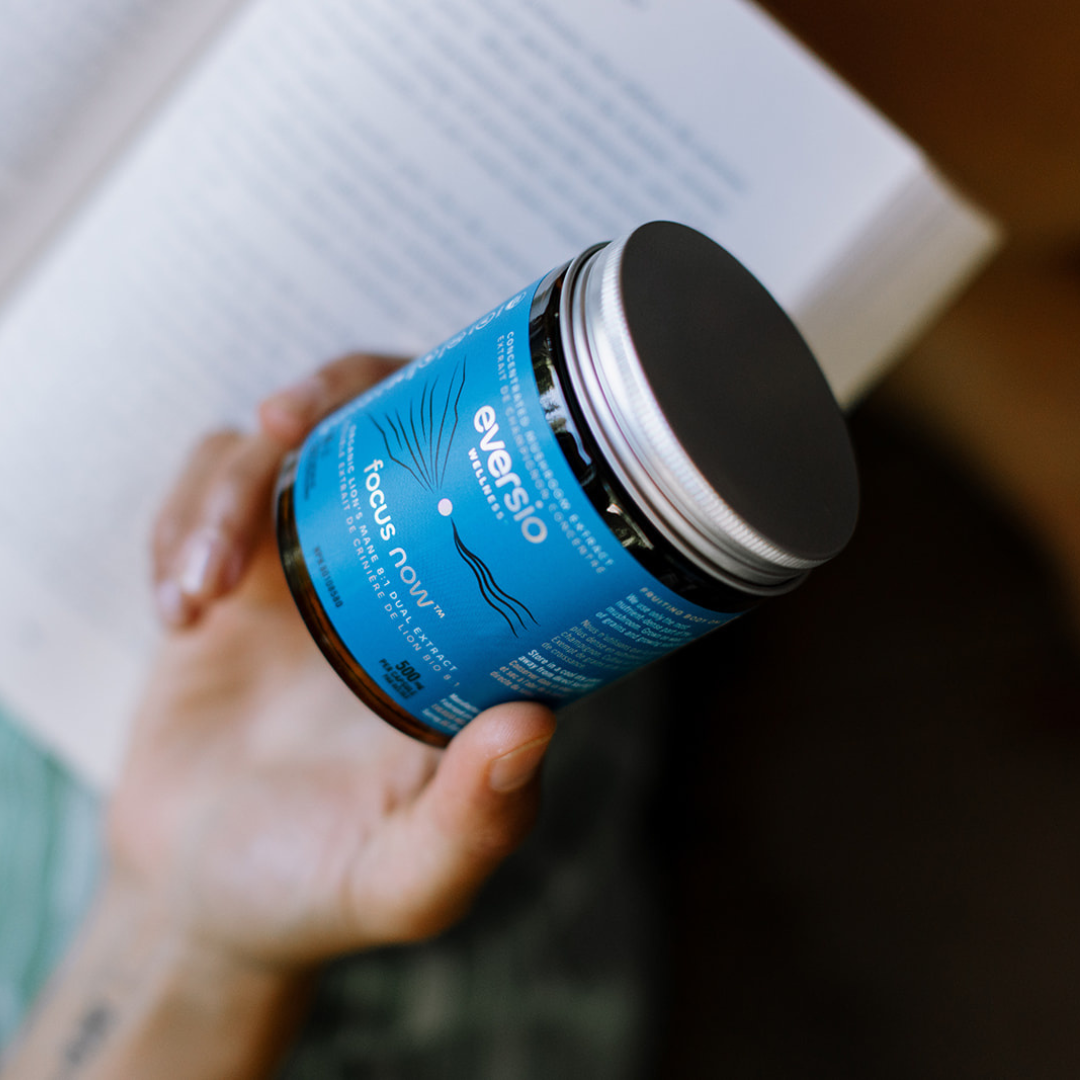
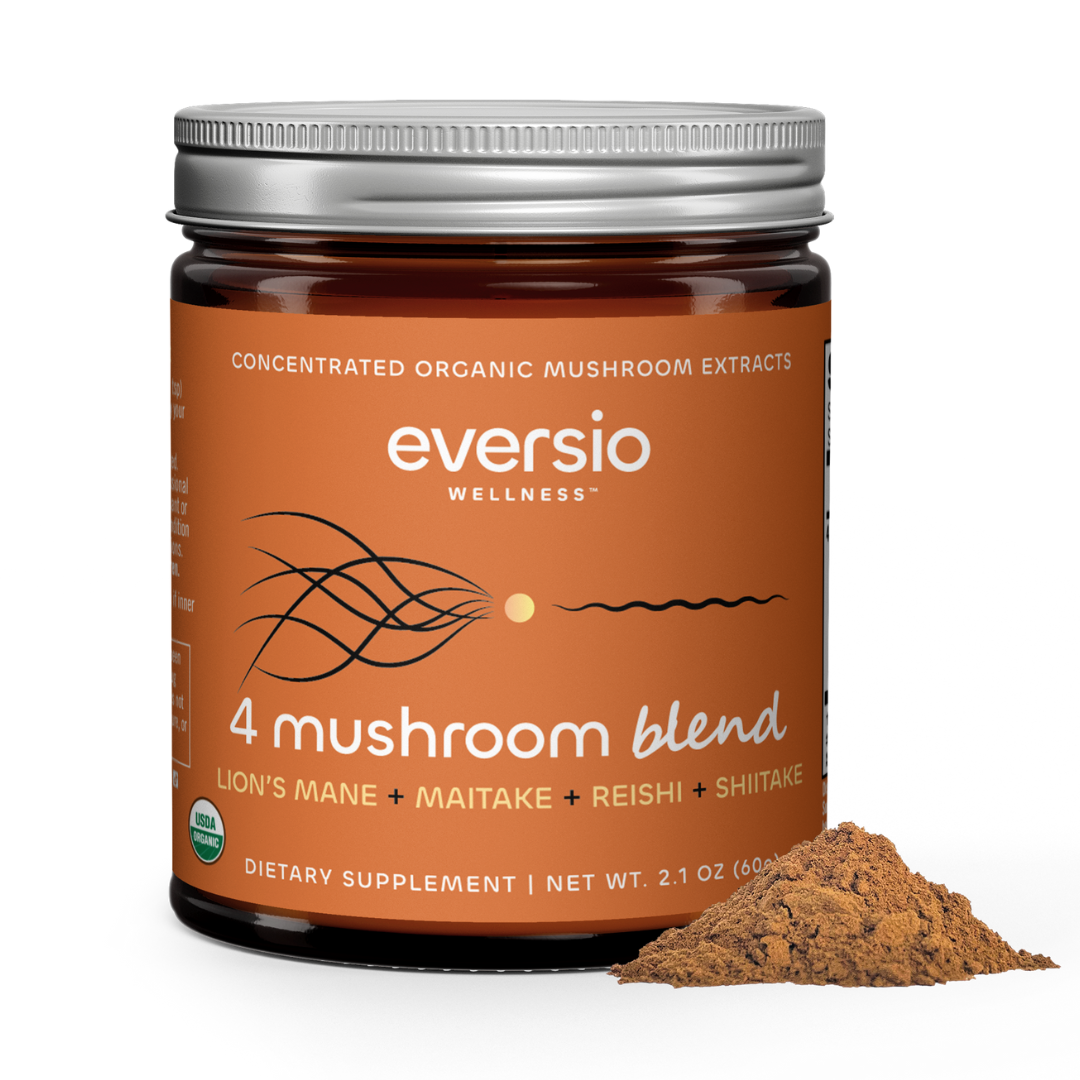
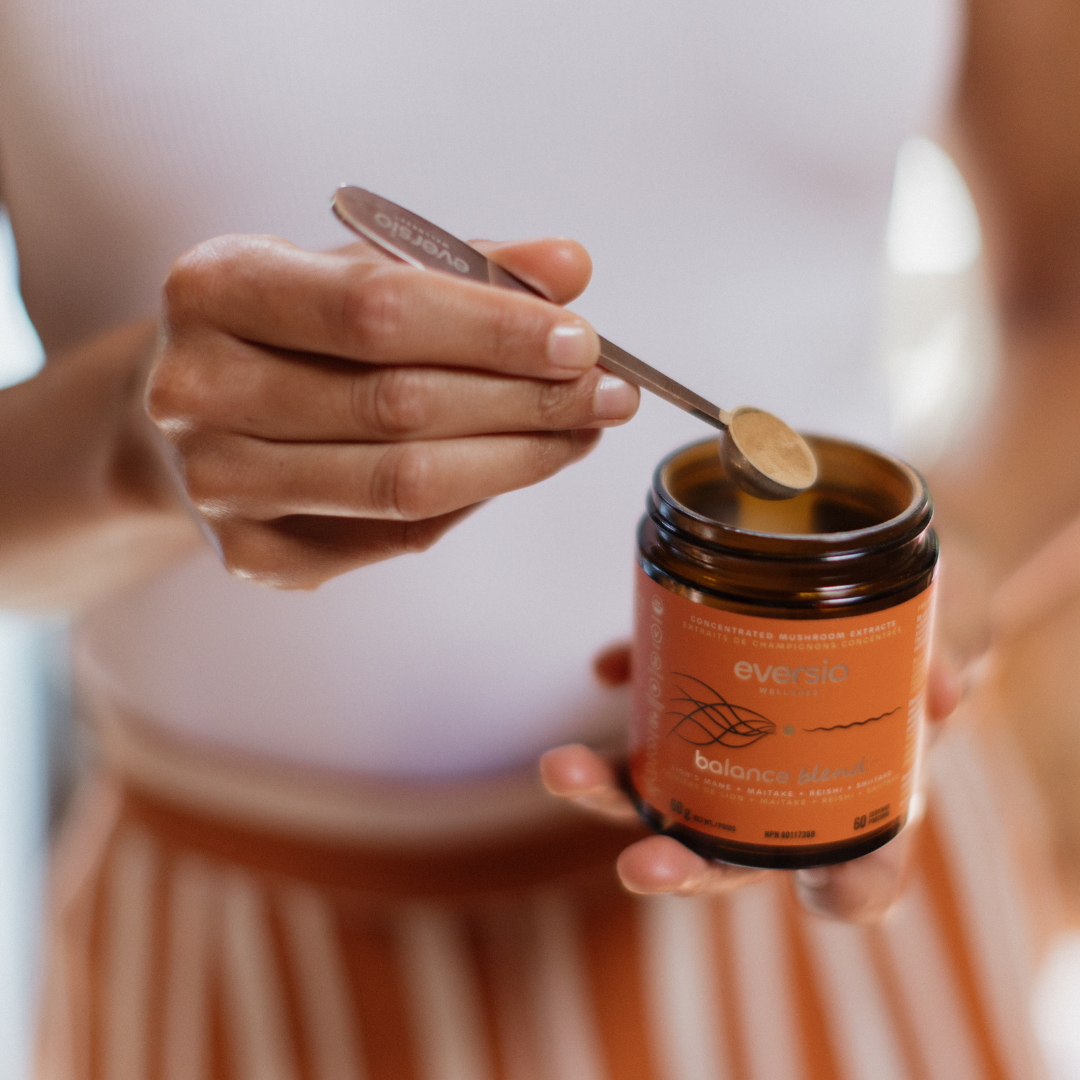
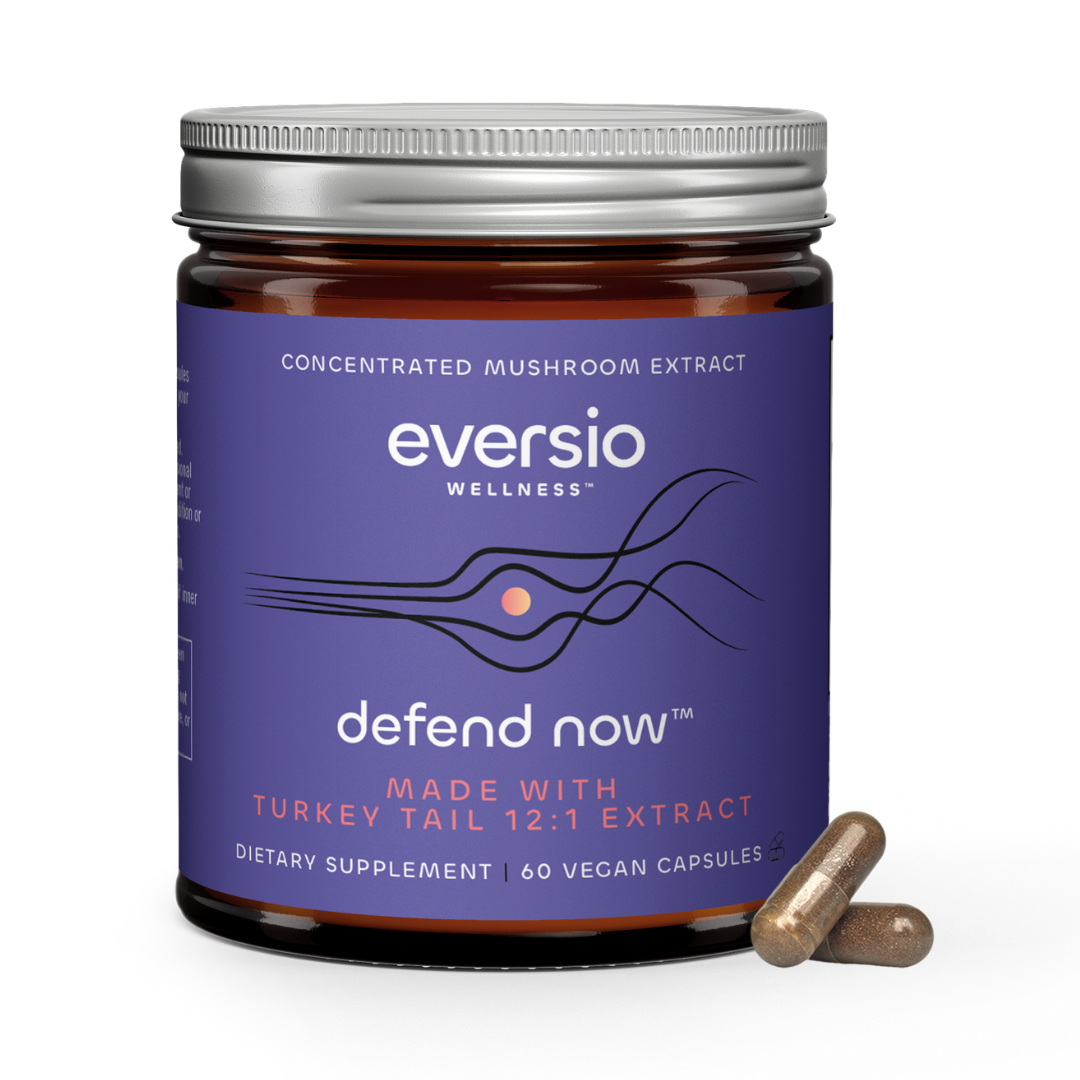
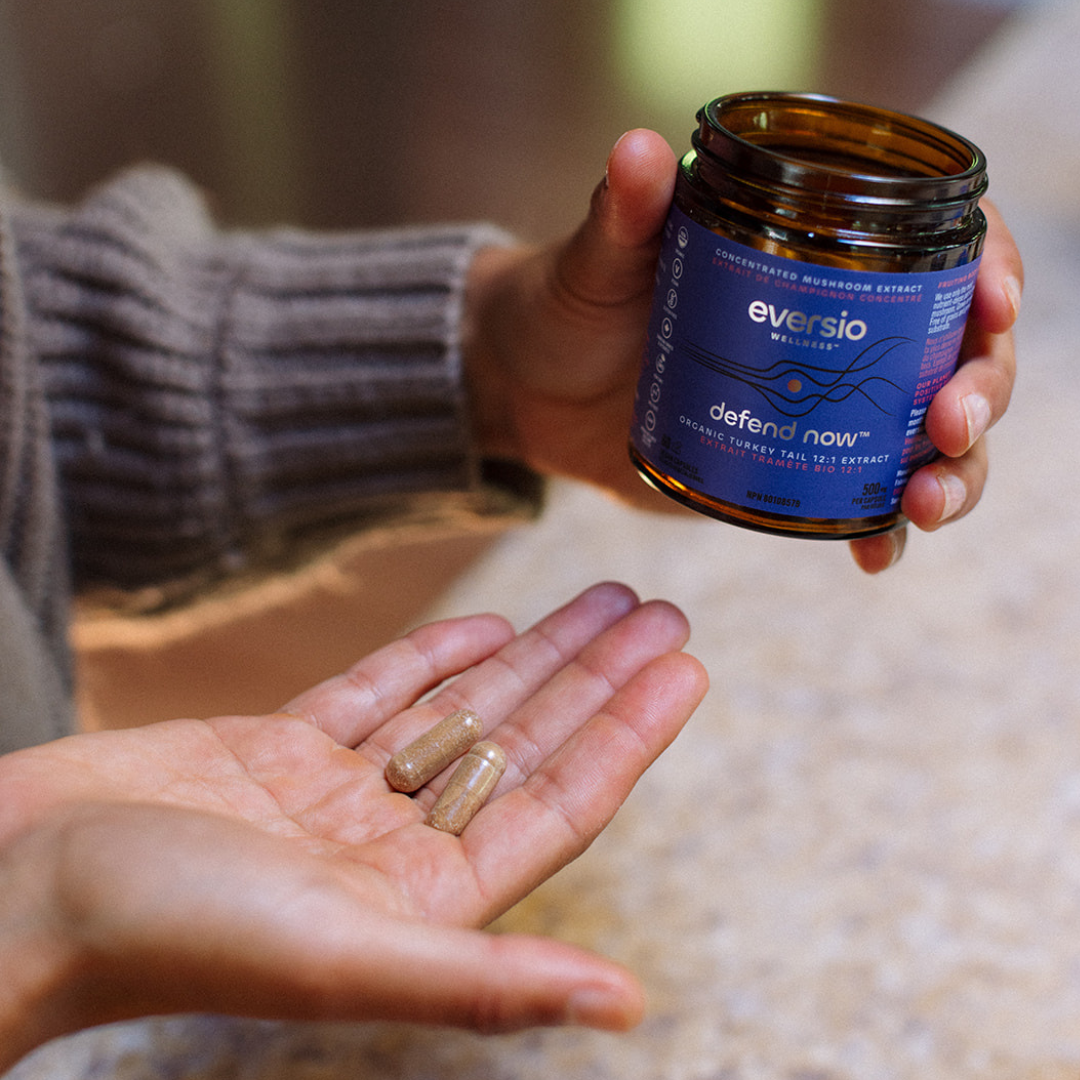
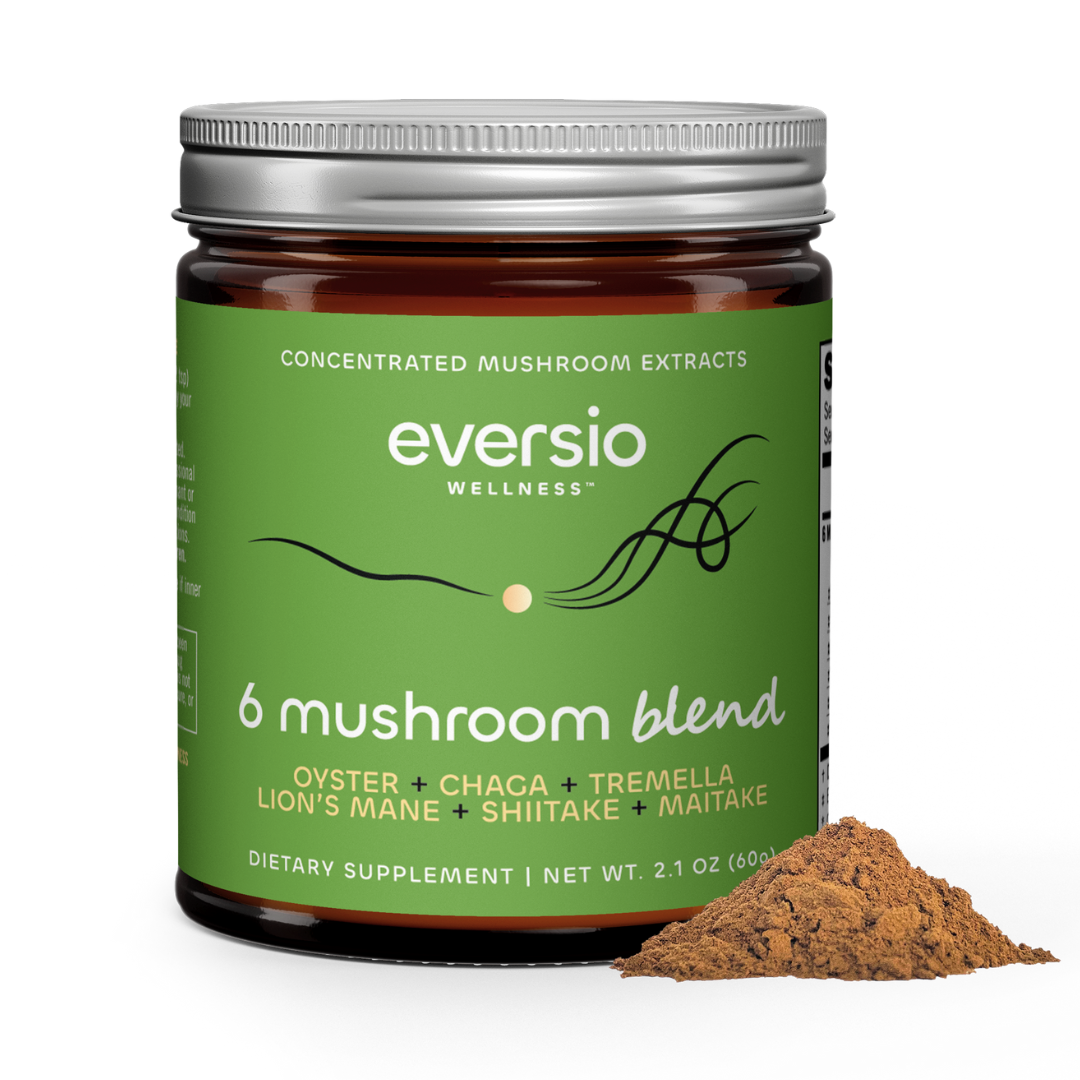
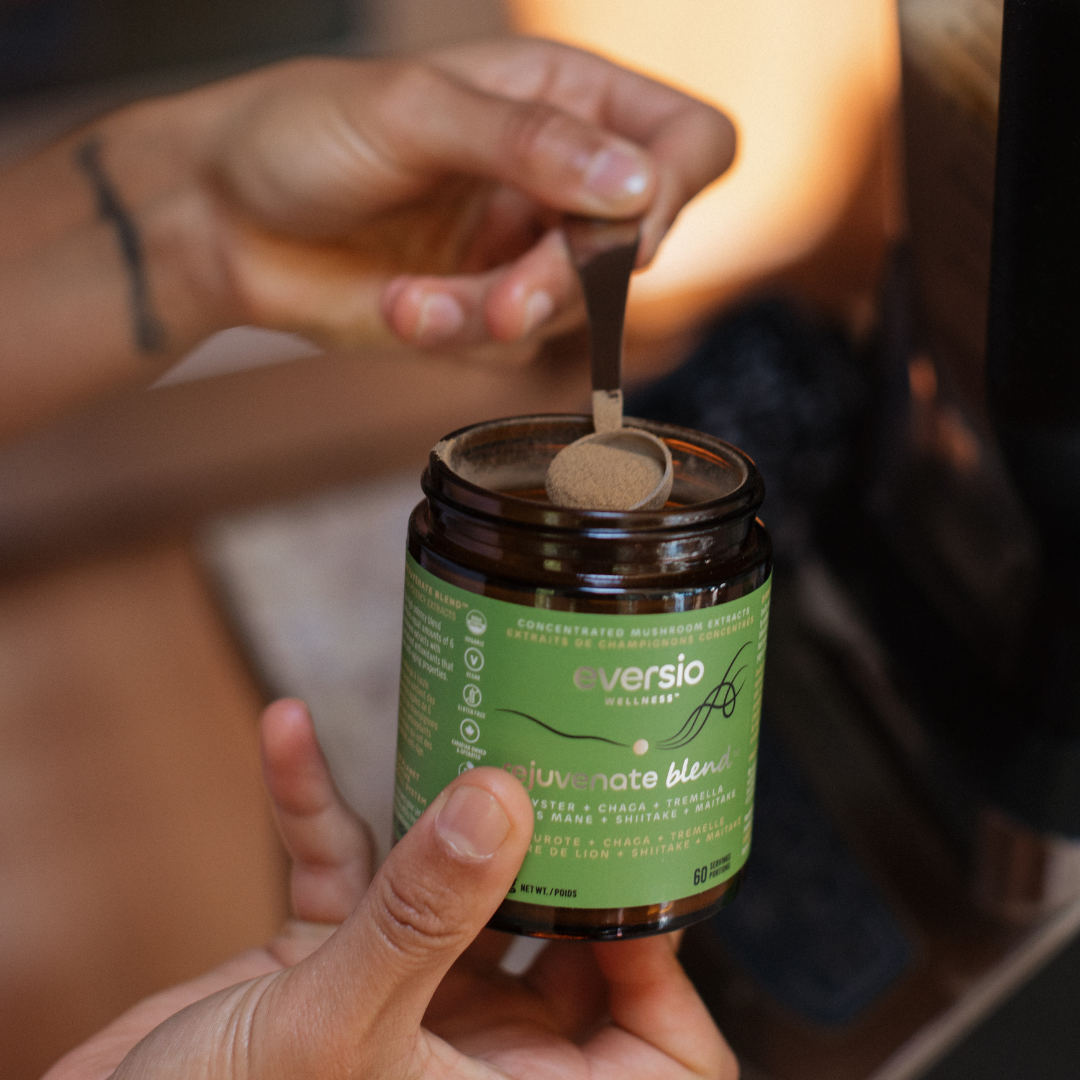


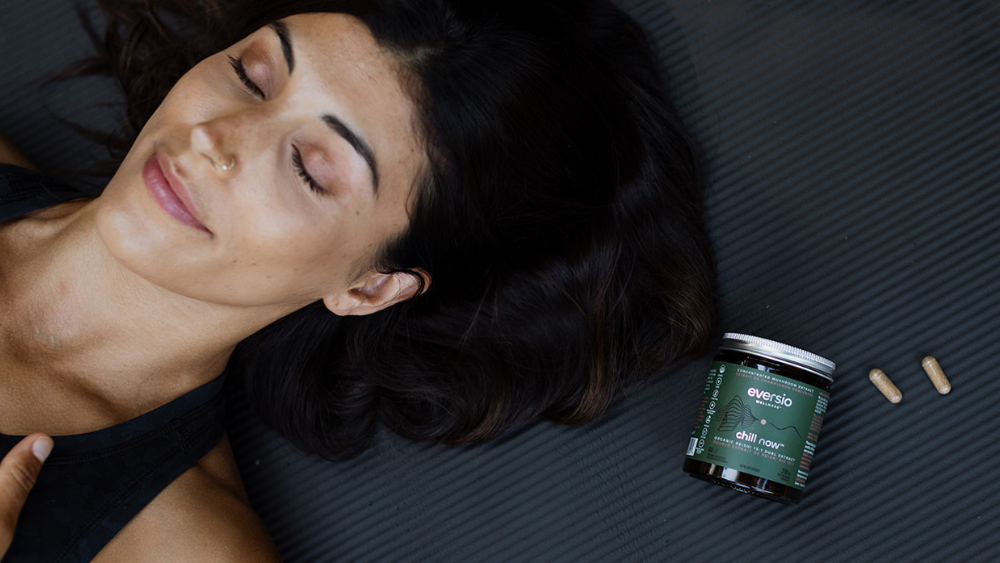





Leave a comment
All comments are moderated before being published.
This site is protected by hCaptcha and the hCaptcha Privacy Policy and Terms of Service apply.